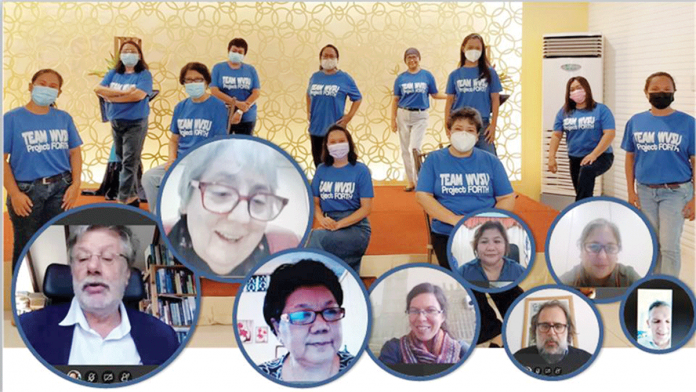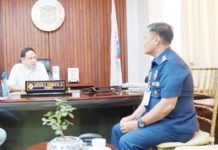
BY HAZEL P. VILLA
ILOILO City – “Teaching in Challenged Areas”, which is a pioneering major in the master’s program and a possible integration in the undergraduate level of participating universities in the Philippines under Project FORTH (Formation of Teachers in Challenged Areas) in partnership with the European Commission and higher education institutions led by Groningen University – is under consideration for full offering.
Thus, the online Third Transnational Training of Trainers “Focalizing Training” started on March 19, 2021 and will end on March 22, 2021 with about 70 participants from the West Visayas State University, Polytechnic University of the Philippines, Centro Escolar University, University of St. Lasalle-Bacolod, and University of Southeastern Philippines, including partners from the European Commission.
Speaking in last Friday’s opening program were Christoph Wagner, head of cooperation of the EU Delegation to the Philippines; Robert Wagenaar, Project Coordinator and Project FORTH Director; Edurne Bartolome who presented the results of the survey on the “Climate of FORTH Meetings and Partner Interactions”; and Maria Yarosh of University of Groningen who presented the Midterm Report.
On its third year now, Project FORTH is taking stock of the program’s methodologies, working relationships, and sense of progress at its midterm point.
Given the pioneering implementation in some universities, the training seeks to “identify the nature and challenges of teaching in challenged areas served by the university clusters and the challenges that Project FORTH can address through focalized training interventions.”
Most importantly, the participants took stock of the current status of the approval of the Commission on Higher Education of the proposed MAEd Major in Teaching in Challenged Areas which CHED Commissioner Lily Freida Milla said has already been approved by the Technical Committee.
It is expected that at the end of the training, participants would have devised a training design for any challenges that Project FORTH can address and finalize the universities’ choice of topic for implementation and facilitation. /PN




